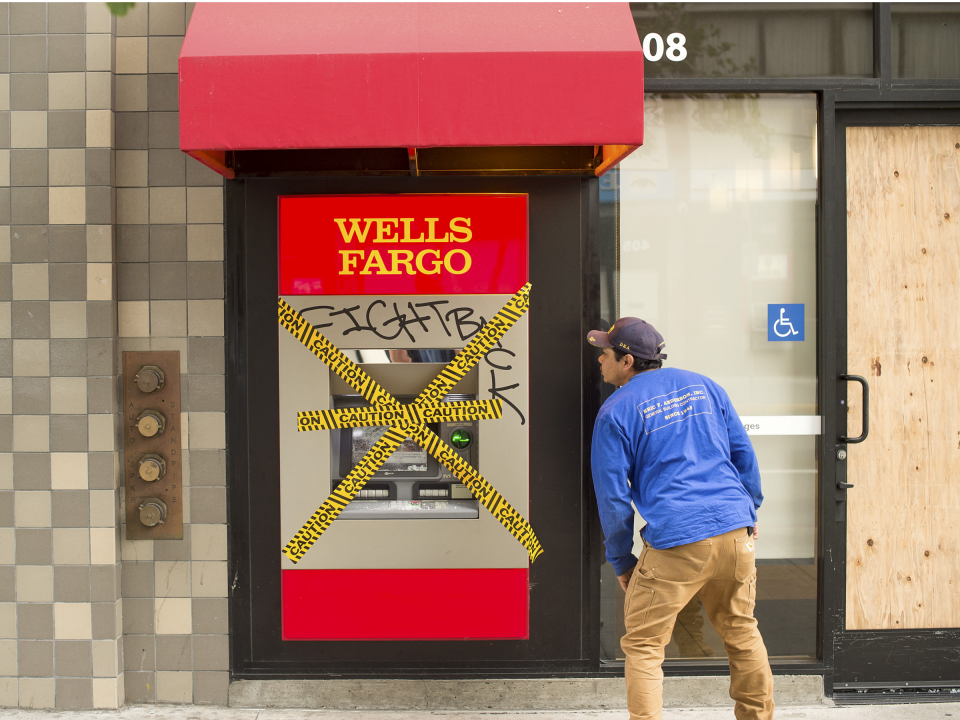The FBI is reportedly quietly warning banks of a potential large-scale hacking scheme that could hit their ATMs

REUTERS/Noah Berger
The FBI reportedly sent a confidential email to banks Friday outlining a potential ATM security threat.
The scheme is known as an "ATM cash-out."
Hackers use malware to access machines, lift controls and access large sums of money.
The FBI is privately warning banks of a potential global hacking scheme that could be carried out through their ATMs.
The bureau sent a confidential alert to banks Friday to notify them individuals are planning a large-scale fraud scheme known as an "ATM cash-out," journalist Brian Krebs first reported on his cybersecurity news website.
FBI spokesperson Lauren Hagee did not comment on the matter specifically, but sent Business Insider the following statement in response to questions about it:
"In furtherance of public-private partnerships, the FBI routinely advises private industry of various cyber threat indicators observed during the course of our investigations. This data is provided in order to help systems administrators guard against the actions of persistent cyber criminals."
In an ATM cashout scheme, hackers can use malware to access a bank or payment card processor and sometimes make fraudulent copies of cards by imprinting stolen card data on reusable magnetic strip cards.
Krebs said they can also manipulate account information and security settings to make large sums of money available for withdrawal.
"Just prior to executing on ATM cash-outs, the intruders will remove many fraud controls at the financial institution, such as maximum ATM withdrawal amounts and any limits on the number of customer ATM transactions daily," Krebs wrote.
NOW WATCH: What's going on with Elon Musk
See Also:

 Yahoo Finance
Yahoo Finance 
